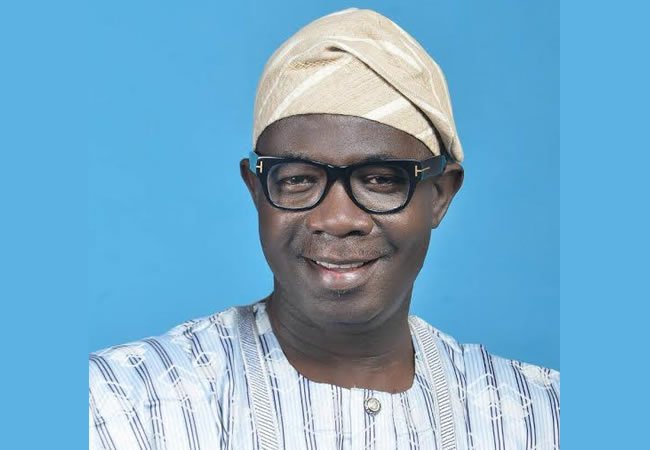Bank Workers Steal N39bn In 1 Year (Read Details)
Posted by E.L.E.X on September 03 2019 under News


Bank workers in Nigeria committed 37,817 fraud cases in 2018 where they stole N26.182billion. This is contained in the National Deposit Insurance Corporation (NDIC) report which showed that the bank employees stole N12.01 billion.
When put together, the amount stolen by the bankers in in just two years from their employers, whose major business is to keep customers’ deposits, was N38.93 billion.
The NDIC report further indicated that the actual amount lost to fraud cases in 2018 stood at N15.15 billion as against N2.37 billion and N2.40 billion in 2017 and 2016, respectively.
Of the number, a total of 899 workers were involved in fraud and forgery cases in 2018 compared to 320 in 2017. The number of temporary staff involved in fraud was 394, accounting for 43.83 per cent of the total number of workers involved in frauds.
This was followed by officers and executive assistants’ cadre with 206 or 22.91 per cent, supervisors and managers accounted for 119 or 13.24 per cent of the total fraud cases.
This had led to more concerns over the surge in official involvement in fraud and forgery cases in the banking industry. The figure of insider manipulation of confidential information of bank customers in the banks has been on steady increase in recent years.
LEADERSHIP gathered that lack of job security, casualisation, poor remuneration and incompetence of senior management in several Deposit Money Banks (DMBs) were among the causes of the rising incidences of fraud and forgery in the industry.
It was also attributed to the increase in the sophistication of fraud-related techniques such as hacking, cybercrime as well as increase in Information Technology (IT)-related products and usage, fraudulent withdrawals and unauthorised credit.
According to the National Bureau of Statistics, the percentage of contract staff in banks rose year-on-year between 2017 and 2018 by 39.8 per cent as against the 15.7 per cent increase recorded for the entire staff in the sector.
In an interview with our correspondent, a professor of Economics and Public Policy at the University of Uyo, Akpan Hogan Ekpo, said that the fact that banks employ temporary/contract staff and keep them for so long is largely responsible for the ugly development.
He said that the banks do so to maximise or improve on their profit margins, noting that the contract staff do not enjoy certain benefits like the regular employees hence when opportunity avails itself for them to make money through fraudulent means, they succumb to such temptations.
“The rate is alarming. Discipline in the system has broken down; the economic hardship is also a problem,” Prof. Ekpo stated.
Other experts said the situation was reflective of the total breakdown of social values and the belief in get-rich-quick irrespective of the means in the Nigerian society.
One of the experts said that the present situation is that majority of the citizens and residents of Nigeria have no confidence in the system.
The chief executive officer of Precise Financial Systems, Dr. Yele Okeremi, said: “This is an evidence of a completely decadent society and it gets wise people very worried about what the future of the country portends.”
Okeremi said that the culture of some management treating employees like disposable machines had helped to build lack of sense of belonging in most bank workers. On the whole, Okeremi sees a situation where people are no longer interested in building institutions to last, adding that “they just want immediate results, a thing that should worry the authorities.”
To check the trend, the NDIC said that DMBs and the industry regulators need to address the problem of contract/temporary staff in terms of welfare and permanent employment in view of the risk their current status poses to bank operations.
Furthermore, banks should strengthen their internal controls and validate their recruitment process, the corporation said.
Similarly, Prof. Ekpo said that banks should hire and after probation period, make the ad-hoc workers permanent employee. He feels that the approach would reduce the number of contract staff in fraudulent practices.
Those who share his view said that there should be incentives for banks to recapitalise and not be forced to do so, adding that “the NDIC and the Central Bank need to intensify the examination of banks to ascertain why recapitalisation requirements have declined. For the banking sector, banks that cannot meet their capital adequacy should face the necessary sanctions. The authorities should not wait for the matter to degenerate before taking action particularly for banks that lend to the real sector.”
Okeremi concluded that while high capital requirement is good for banks, sound management practices are more significant for banks to survive and thrive.
ICPC To Recover N840m From Ex- Benue Judge
From the banking sector to the judiciary, the theft of public funds by officers vested with the responsibility is rife.
For instance, in Benue State, a retired judge is being asked to cough out the sum of N840m which she illegally acquired.
The Independent Corrupt Practices and Other Related Offences Commission (ICPC), which is handling the matter, has asked the Federal High Court, Abuja, to order the interim forfeiture of N840 million traced to the retired president of the Benue State Customary Court of Appeal, Mrs. Margaret Igbeta.
ICPC spokesperson, Rasheedat Okoduwa, in a statement she issued yesterday in Abuja, said that the commission, in an ex-parte motion filed at the court, sought for an order to stop Igbeta from accessing the money alleged to have been obtained through fraudulent activities in the course of her official duties.
The commission said that the request for the interim forfeiture was pursuant to Section 48 (1), (2) and (3) (a) and (b) of the Corrupt Practices and Other Related Offences Act, 2000 and Section 6 (6)(a) of the 1999 Constitution of the Federal Republic of Nigeria (as amended).
Okoduwa said that Igbeta operated a proxy fixed deposit account in the name of her maid, one Theodora Atsu, with Ecobank Plc, where she accumulated N840.321million between 2008 and 2019.
She reportedly opened the account with her passport and the name of Atsu on 5th March, 2008 with an initial deposit of N8million.
Igbeta subsequently made several other huge deposits including N123.745million and N5 million, in the months of March and May 2008.
ICPC said that the money was far above Igbeta’s legitimate earnings both as a judge and president of the Customary Court of Appeal within the period that the account was operated and would have used to meet the infrastructural needs of the citizens and the development of the nation.
The anti-graft body therefore prayed the court to grant the order in the interest of the country.
…Probes Former Health Minister Over N300m Project
Meanwhile, the ICPC has initiated the probe of former minister of Health, Prof. Onyebuchi Chukwu, is over his alleged misappropriation of N300 million project at the Federal Medical Centre (FMC), Gusau, Zamfara State.
Acting on petition written against the ex-minister by some Zamfara youths, the ICPC has invited Chukwu for interrogation on the matter.
In an interaction with journalists after submitting the petition, the leader of the Health Safety and Environment Charity Initiative, Aminu Ahmad, said that the group brought to the notice of the ICPC the diversion of N300 million meant for the procurement of healthcare facilities for the FMC during Chukwu’s tenure. He served under the administration of former President Goodluck Jonathan.
Ahmad disclosed that the money was for project initiated by Senator Kabir Garba Marafa for his constituency.
According to him, “the project was captured in the 2013 budget; the money was released by the Federal Ministry of Finance to the Federal Ministry of Health since 2013, and all available records indicate that all necessary funds were released.
“We are very surprised to discover that the project was not executed in Federal Medical Centre, Gusau despite the release of the N300 million to the Federal Ministry of Health.
“From available records, the former minister of Health who served from 2011 to 2014, in connivance with the former permanent secretary in the Ministry of Health diverted the money,” he said.
The petition read that “we seek your intervention to kindly investigate the circumstances surrounding the diversion of the funds meant for the good people of Zamfara State with a view to righting the wrongs by ensuring full execution of the proposed project in FMC Gusau, Zamfara State to the benefit of the citizenry.”
The youths attached photocopies of documents from the Federal Ministry of Finance confirming the release of the funds to their petition.
In her reaction, Okoduwa (ICPC spokesman) said: “Now that you have submitted the petition, we assure you that we shall look into it; any offence anybody commits or had committed since the establishment of ICPC and the passing of the law in 2000 is subject to our investigation. Any offence of corruption committed falls under the purview of the ICPC and would be investigated.
“Ordinarily, ICPC will look into any petition on anything regarding corruption, whether it is constituency project or any other thing; ICPC would look into such projects. Moreso when it now fits into the format of the framework of these constituency projects we are tracking, definitely this would get some action,” she declared.
Tweet
YOU MAY ALSO LIKE
Comments
Add Comment
All fields are required!






















































